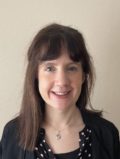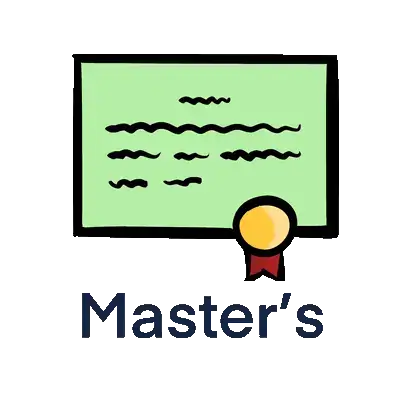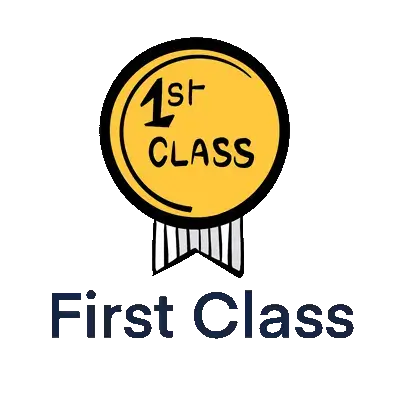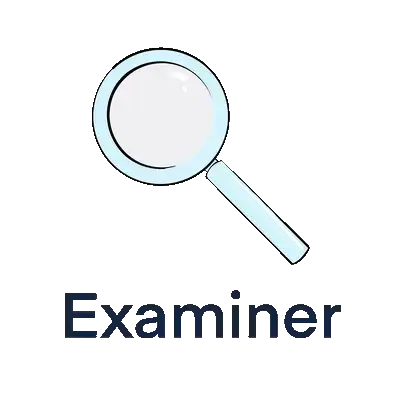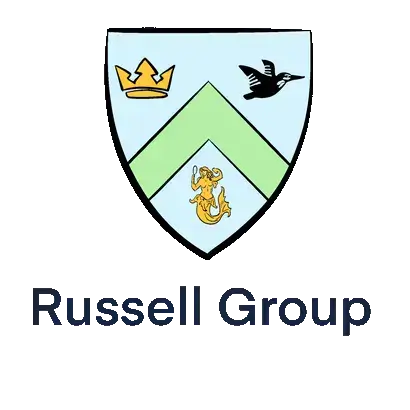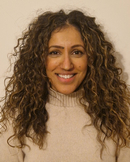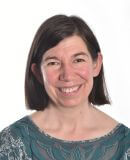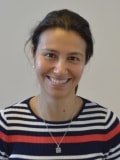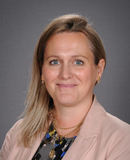King’s College School Wimbledon tutors
King’s College School Wimbledon entrance guide
King's College School Wimbledon Overview
King's College School Wimbledon (KCS) has established itself as one of South West London's most in demand schools. Although relatively new (established 1829) compared to other, much more ancient, London schools, King's College School has positioned itself as a liberal and trailblazing educational institution for the 21st century.
More recently, it has performed very well in ISI inspections and a good number of students progress to top universities upon completion of their studies.
The senior school is served by an equally popular and competitive lower school, King's College Junior School. It has existed as its own institution for over a hundred years now with the vast majority of its boys progressing through to the senior school.
Like any popular independent school, competition for places is very high. To help, we have put together a comprehensive guide below, where you can also meet our King's College School tutors.
7/8 Plus Guide to King’s College Wimbledon School
King’s College Junior School (KCJS) is a top academic school for boys in Wimbledon, South West London. Boys are offered a place based on competitive examination and assessment. The first point of entry is at 7+ for entry into Year 3 (around 55 available places) and the next is 8+ for entry into Year 4 (around only 10 places). Below you will find an entry guide as well as a list of our King's College experienced tutors.
KCJS mostly follows the typical 7/8 Plus procedure, with a written assessment in English (a comprehension and creative writing task; 45mins), Maths (45 minutes) and Reasoning (VR and NVR). The difference to other schools’ assessments is the listening test: a 25 minute test where instructions and questions are played over a loudspeaker and students have to note down their responses to what they hear.
All aspects of the assessment take place at the school.
If students are successful at the written examinations they will be invited to an activity morning and an interview.
How to prepare for the King's College Junior School exams
Start early
Starting early offers you a chance to see where your child is in relation to where they need to be and focus on bridging the gap in a relaxed manner. You may like to get a tutor with 7 Plus experience on board at this point to do a baseline assessment and create a programme of learning.
Ensure curriculum knowledge and understanding
Using a ‘curriculum tracker’ (Owl Tutors have one on their website), the curriculum stated on the school’s website, and a suggested 7 Plus reading list can be useful to ensure your child has a secure understanding of the content and expected level of the exam. Generally the 7 Plus exam will be looking for students to be working securely at the top end of Year 2 and challenge questions will extend into the Year 3 curriculum. The 8 Plus exam will be based on the Year 3 curriculum extending into Year 4.
Read widely and daily
The importance of regular reading using a wide range of texts cannot be underestimated. This is the most helpful and efficient way a student will build vocabulary, knowledge and confidence for every aspect of the exam.
Practice for every part of the exam
The best way to prepare is to practice! Bond and CGP books are helpful for practising maths, comprehension and reasoning questions and there are plenty of examples of creative writing questions on the internet and in past papers.
Prepare for the listening test
The listening test involves listening to and following a set of instructions played over a loudspeaker. Exam Papers Plus (EPP) offer practice with the listening test, including a range of practice exercies and the audio with an automated voice for students to get used to listening to.
Use specific past papers
When your child shows sufficient understanding of the content and curriculum, practising with past papers - at least a couple of months ahead of the exam - is an essential part of the preparation process. As KCJS is a competitive, academic school, papers with a high academic level should be used. I recommend the ones by Exam Papers Plus (EPP).
Support with exam technique
Often students this young are not experienced with taking formal exams so they will be unaware of how they may gain or lose extra marks. Explicit instruction will be helpful here. For example, encourage your child to leave a couple of minutes at the end to read over their writing, checking for correct punctuation and spelling etc; practise reading over the instructions written on the front of the paper; encourage reading each question carefully, highlighting important words; show that they should move on if they get stuck on a question and come back to it at the end if there is time; explain the importance of showing their working out in the maths paper.
Practice under timed conditions
Entrance exams are often the first time students have experienced doing assessments under strict time conditions. It is essential that students get to practice the different aspects of the exam under timed, exam conditions to get a feel for how quickly they need to work and to get used to working at speed.
Mock exams
Set up a mock exam, have your tutor conduct one or, best of all, sign up for one at a 7 plus exam centre to give your child an experience of taking assessments with other students in an unfamiliar setting.
Interviews
If your child is invited for an interview it is helpful if they have some understanding of what will happen and some practice at interview technique. There are some practice interview questions in another article on the Owl Tutors website I have written that can be used in role plays. Basically, students should get in the habit of answering questions in an expanded form i.e. full, expanded sentences rather than one word answers. They should be encouraged to sit properly on the chair (legs down, hands in their lap), make some eye contact with the interviewer, listen carefully when the interviewer and other student are speaking, remember their manners and think of some questions they may like to ask. It’s a fine line between some practise with this and sounding like answers have been memorised - balance is key! KCJS wants to see the personality of your child shine through as well as their intelligence and academic prowess.
The preparation process for the 7 and 8 Plus exams for KCJS can be challenging, but armed with time, knowledge and support it can definitely be made easier. Good luck!
11 Plus admissions to King's College Wimbledon
Introduction to 11 Plus admissions to King's College Wimbledon
There are around 60 places for boys new to the school at Year 7. They will join a further 60 boys who already attend the Junior School and do not need to take the entrance examinations. These numbers may vary year on year depending on how many are in the current Year 6 cohort. The process is competitive and there are likely to be over 500 children applying for 60 places. However, some of these may be offered deferred places into Year 9, as the admissions process is largely the same.
Open days and visits for 11 Plus admissions to King's College Wimbledon
KCW runs short 'forum' events for those interested in 11 plus admissions. The link to book these is here. They typically last around two hours, and allow families and students to tour the school and hear a talk from the Head. These do fill up quickly, so the school also runs a special 11 plus open evening, also bookable on the same link, and a whole school Open Morning every September.
Timetable for 11 Plus admissions to King's College Wimbledon
Registration for entry to 11 plus at KCW should be made on this portal, which is open until the November of the year when the child is in Year 6. Students will then sit the entrance exams in the December, and some are then invited to interview in the January (all when the child is in Year 6). Results will be emailed to families in February, and must be accepted by the start of March, for the child to start at the school in September of Year 7.
How to register for 11 Plus admission to King's College Wimbledon
Registration is made via an online portal, linked here. At this point a registration fee is taken of £210. KCW currently only accepts pupils who either live in the UK or meet certain strict restrictions. They cannot sponsor child visas. Any applicants living overseas at the time of registration must be prepared to travel to the school to sit the assessments.
Assessments process for 11 Plus admission to King's College Wimbledon
There are three papers, which must be sat at the school on the same date: English, Maths and Reasoning. The school publishes sample materials here for English and Maths. Following this, some students are taken forward for interview.
School fees for King's College Wimbledon at 11 Plus
School fees for KCW can be found here.
Successful students must pay a £2500 deposit. The current advertised fees are £9570 per term for students entering via 11 Plus, so almost £30,000 per year. This will increase. This fee includes VAT.
Scholarships for King's College Wimbledon at 11 Plus
Academic scholarships are available at KCW for students entering Year 7. These are judged on the entrance examinations, and there is no need to make a separate application. Music and Sports scholarships are also available, and separate dates will be emailed to families who indicate on the registration form that they wish to apply for these. The scholarships are effectively token in value in relation to school fees, bringing a maximum discount of a little over 1% of annual school fees, but do come with other benefits.
The King's 11+ music scholarship is up to £400 off the annual school fee, but does also include instrumental tuition in two instruments. At 11+, the school is looking for students at grade 5 or above. There is a soft expectation of students playing more than one instrument. Students require a reference from their music teacher, and will be required to sit an audition, currently in the January of Year 6. This audition requires them to play 2 pieces on their main instrument, and a third on a second instrument if relevant. Students receiving the award are expected to "contribute fully to the musical life of the school". This effectively means joining choirs, orchestras etc. The music scholarships are assessed on an ongoing basis, and can be taken away.
The Kings 11+ sports scholarship is worth either £200 or £400 of the annual school fee. Students will be expected to participate in the core sports offered by the school, which are: rugby, football, cricket, hockey and tennis. Students are assessed via a two step assessment process.
13 Plus admissions to King's College Wimbledon
Introduction to 13 Plus admissions to King's College Wimbledon
Entry at 13 plus, into Year 9 at King's College Wimbledon, is only possible via a deferred entry system. This means that boys must apply and sit entrance tests in Year 6, three years prior to their entry date. They will then remain at their current prep school until Year 9, when they will transfer to KCW. There is also a later opportunity when they are in Year 8 to sit for scholarships, including academic scholarships. It is not possible to apply for both 11 plus and 13 plus entry; parents must specify which entry date they are looking for at registration. If a pupil has been unsuccessful at 11 plus, they are not eligible to apply for 13 plus entry at a later date.
Open days and visits for 13 Plus admissions to King's College Wimbledon
The school holds an annual Open Morning every September, open to families looking for entrance to the school at any year group. However, there are also specific 13 plus forums, designed to tell prospective students and their families more about this specific entry point. These are held in March, April and June and can be booked here. They are held at the school and families must make arrangements to travel there in order to attend.
Timetable for 13 Plus admissions to King's College Wimbledon
For entry into Year 9, boys must apply in Year 6. They will take the same tests as the 11 plus candidates in December of Year 6. Some boys will then be invited for interview in January and those who are successful in both stages will then be offered a deferred place to start in Year 9.
How to register for 13 Plus admission to King's College Wimbledon
Registration takes place via the school website, linked here. The registration deadline is November of Year 6, and the school only accepts UK-based families or those who have family legally allowed to stay in the UK for the time the child attends the school. There is a deposit to pay upon registration, which is £210.
Assessments process for 13 Plus admission to King's College Wimbledon
13 plus assessments for KCW are taken at the same time as 11 plus assessments, in December of Year 6. There are three papers: English, Maths and Verbal Reasoning. Specimen papers are available here. Please note that the papers for 11 plus and 13 plus are the same. The second stage is an interview, and this takes place following the entrance assessments. Not all boys will be called forward to interview. Following this, offers are made, conditional on Headteacher's references which will be requested when the pupil is in Year 8. There is also a waiting list, and boys who are placed on this may have an opportunity to sit further assessments at a later date.
School fees for King's College Wimbledon at 13 Plus
Fees for King's College Wimbledon can be found here. There is a £2500 deposit to be paid once the place is confirmed, which for Year 9 entry may be three years in advance of the child starting at the school.
The current advertised fees are £10,483 per term for students entering via 13 Plus, so over £30,000 per year. This will increase. This fee includes VAT.
Scholarships for King's College Wimbledon at 13 Plus
The value of all scholarships is minimal (around £400). To apply for an academic scholarship at 13 plus, boys must hold a conditional offer from the school. They can then request to sit the academic scholarship assessments, which are held in May of Year 8. It should be noted that there are no optional papers, and all candidates must sit the following papers:
- English (comprehension and literature or creative writing)
- Maths
- Science
- History
- Geography
- French
- Latin
Students sitting for an academic scholarship will also be interviewed, and sit a French oral exam.
Art scholarships are available to King's at 13 Plus. Students are required to attend an assessment morning, where their drawing skills are tested. They will be required to bring in their portfolio, and have a discussion with the head of Art. Students receiving an Art scholarship would be expected to sit Art at GCSE. Art scholarships at King's are currently worth either £200 or £400 per year.
Drama scholarships are available to King's at 13 Plus. Students are required to attend a workshop morning, where they will take part in a practical workshop with current King's drama teachers. Students are expected to become involved in dramatic productions at the school. Drama scholarships are worth £400 per year.
Music scholarships are available to King's at 13 Plus, and are worth £400 per year, plus free tuition on up to two instruments. At 13+, the school is looking for students at grade 6 or above. There is a soft expectation of students playing more than one instrument. Students require a reference from their music teacher, and will be required to sit an audition, currently in the January of Year 6. This audition requires them to play 2 pieces on their main instrument, and a third on a second instrument if relevant. Students receiving the award are expected to "contribute fully to the musical life of the school". This effectively means joining choirs, orchestras etc. The music scholarships are assessed on an ongoing basis, and can be taken away.
The Kings 13+ sports scholarship is worth either £200 or £400 of the annual school fee. Students will be expected to participate in the core sports offered by the school, which are: rugby, football, cricket, hockey and tennis. Students are assessed via a two step assessment process.
Interviews at King's College Wimbledon and offers of a place
The second stage of the entrance process at both 11 plus and 13 plus is an interview. Only children who have succeeded in passing the entrance exams are offered an interview, and these take place in January of Year 6. These are likely to be around 20 minutes long and cover the usual range of topics. Offers are then made for either Year 7 entry or Year 9 entry. Year 7 offers are unconditional. Year 9 offers are conditional and dependent on the results of Common Entrance or references from the current school if Common Entrance is not taught.
Bursaries at King's College Wimbledon
Bursaries are offered up to 100% of the yearly fees. These are means-tested and may involve a home visit; King's employs an outside company to undertake bursary assessment so the process is likely to be rigorous. Bursaries are reviewed annually and are available at 11 plus and 13 plus entry points. There is a bursary prospectus available on the website which gives detailed information for prospective families.
Click here to access the King’s College School Wimbledon website
Related exam papers
View 7 Plus papers hereView 8 Plus papers here
View 11 Plus papers here
View 13 Plus papers here
View 16 Plus papers here
